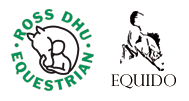Did you know that horses have a total of 36, durable teeth? These allow them to chew hard materials every day. Good dental care is crucial in order to keep your horse healthy, prevent disease and keep them comfortable. It is better to prevent any potential issues rather than wait until they must be treated by a vet. The easiest way to avoid problems is regular check-ups and providing your horse with enough fibre. However, some issues may still occur even if you attempt to prevent them. Therefore, it is important to monitor your horses’ behaviour in order to quickly identify if they are in discomfort as one problem can lead to a number of other complications. Signs to look out for that may indicate they have dental issues include:
- tongue lolling
- tossing their head
- chewing on their bit
- dropping food
- reduced appetite
- weight loss
Dental Care for Foals – In young horses, the most common issue is when a baby tooth does not come out or prevents mature teeth from coming through. These can cause the foal to have a painful mouth or infections. Behaviours that suggest that your horse may have one of these problems includes, drooling or foaming at the mouth, bad breath and chewing differently. As younger horses tend to have theses issues, some vets say it’s beneficial to have their teeth examined twice a year instead of annually.
Dental Care for Mature Horses – As a horse ages, their teeth grow and as the horse chews they wear away the surface of the tooth which causes the tooth to become uneven. These sharp edges can cause painful cuts to the horses’ mouth, cheek & tongue. To help prevent these issues, your horse will have to have their teeth floated each year. Floating involves filing away sharp edges of the teeth in order for chewing surfaces to be smoother. The file used is normally called a ‘float’ hence the term ‘floating’. Frequent check-ups should be considered as this will give early indication of any potential problems, allowing them to be dealt with immediately.
Dental Care for Senior Horses – As horses get older, they may begin to loose their teeth which makes it problematic for them to eat. This can lead to your horse not getting enough nutrients and losing weight. Signs that your horse may be suffering from tooth lose include, drooling and spitting out food. To overcome these problems, provide your horse with softer foods. Horses with missing teeth should have more check-ups, around 2-3 per year.
Happy teeth caring.
